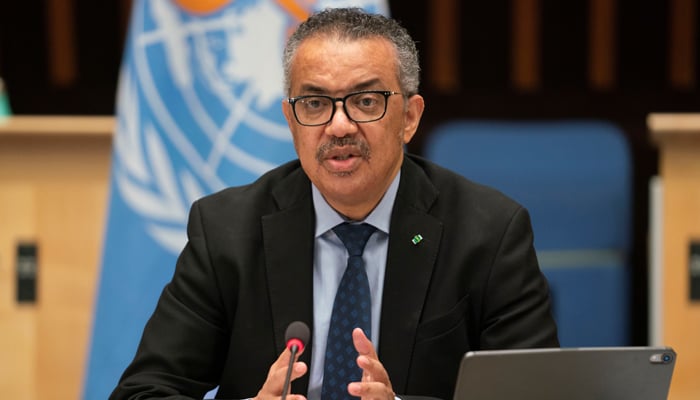WHO concerned about women's right to safe abortion services
Restricting women’s access to safe abortion methods would not reduce the number of procedures, says WHO chief
April 18, 2023

The World Health Organisation (WHO) on Tuesday expressed concerns that women were being denied access to safe abortion services by legislatures and courts.
Speaking at a press conference, WHO chief Tedros Adhanom Ghebreyesus said: “Restricting women’s access to safe abortion methods would not reduce the number of procedures, but only drives women and girls to unsafe ones and death”.
The statement comes soon after the US Supreme Court temporarily extended access to abortion drugs while the court considered the case.
"To be clear on WHO’s position — women should always have the right to choose when it comes to their bodies and their health,” Tedros said.
He further added: "WHO is concerned that the right of women to access safe abortion services, including through the use of medical abortion medicines, are being limited by legislators, and/or courts."
"Women should always have the right to choose when it comes to their bodies and their health. Restricting access to abortion does not reduce the number of procedures, and only drives women and girls towards unsafe ones, and also death.
"Ultimately, access to safe abortion is healthcare that saves lives," he said.
During the press conference, the WHO chief also discussed the establishment of a tuberculosis vaccine council, which will involve civil society and jointly push for speeding up new vaccine development. “There are currently 16 candidates and with the right investment we can turn the tide against this ancient killer.”
He added that the high-level UNGA meeting on Tuberculosis in September last year was a “key moment” to look at challenges and find solutions together.
He reiterated that the civil society communities affected by the disease are central to the joint efforts to support countries in controlling and stopping the spread of the killer disease.











